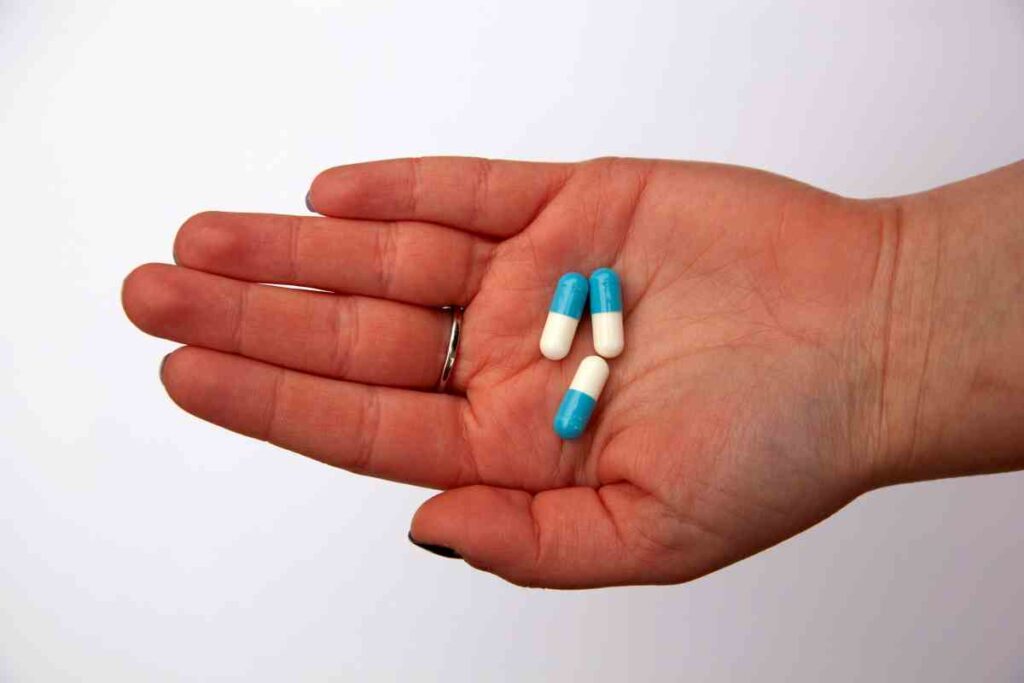

Related Posts
- Everything You Need to Know About Riviera Maya, Mexico
- How To Find A Deal for an All-Inclusive Resort in Riviera Maya & Travel Tips
- Dominican Republic | Santo Domingo & Bahia Principe Grand Punta Cana Review
- Dreams Aventuras Riviera Maya: Newly Renovated, Reopened September 2021
- Grand Bahia Principe Riviera Maya: One of My Favorite Resorts…Here’s Why
- Chasing Shadows: Eclipse Across Mexico and North America | April 8, 2024
How to Avoid Tummy Issues While Traveling
The information provided below is not medical advice. If you are experiencing symptoms of gastrointestinal issues consult your doctor for treatment.
Traveling to Riviera Maya, Mexico is a popular vacation choice, offering beautiful beaches, ancient ruins, and vibrant culture. However, travelers to this region can be susceptible to various gastrointestinal issues. In this blog, I will discuss common gastrointestinal problems one might encounter in Riviera Maya, how they may be treated, and suggestions for preventive measures to ensure a healthy and enjoyable trip.

If you have a sensitive stomach, you may experience tummy issues from eating foods that are different from what you are used to. Overindulging can cause distress that may or may not be caused by a bacteria or parasite therefore taking a break from excessive eating may relieve your symptoms. Drinking more than usual could have a similar effect on your tummy. It’s easy to overindulge because the sun is hot, the drinks are plentiful, and they go down the hatch easier when they are all included. With the abundance of food available, I have been my own worst enemy when my eyes are bigger than my stomach, and, no add insult to injury, I’ve lost count of the spirits that I’ve consumed. For the times when an upset stomach could be caused by more than immoderation, seek medical care when appropriate and be aware of the pitfalls that lurk in the food while eating out whether on vacation or at your favorite local eatery.
Common Gastrointestinal Issues to be Aware of While Traveling in Riviera Maya

- Traveler’s Diarrhea (TD)
Traveler’s diarrhea is the most common gastrointestinal issue for tourists in Riviera Maya. It is typically caused by consuming contaminated food or water, often harboring bacteria like Escherichia coli (E. coli), Salmonella, or Shigella.
- Food Poisoning
Food poisoning can result from consuming food contaminated with toxins produced by bacteria such as Staphylococcus aureus, Bacillus cereus, or Clostridium perfringens. Symptoms include nausea, vomiting, abdominal cramps, and diarrhea.
- Giardiasis
Giardiasis is an intestinal infection caused by the parasite Giardia lamblia. It can be contracted through contaminated water or food. Symptoms include diarrhea, gas, greasy stools, stomach cramps, nausea, and dehydration.
- Hepatitis A
Hepatitis A is a viral infection that affects the liver. It is transmitted through ingestion of food or water contaminated with fecal matter. Symptoms include jaundice, fatigue, abdominal pain, loss of appetite, nausea, and fever.
- Cholera
Cholera is a severe diarrheal illness caused by the bacterium Vibrio cholerae, often spread through contaminated water. Symptoms include watery diarrhea, vomiting, and rapid dehydration, which can be life-threatening if not treated promptly.
Treatment of Gastrointestinal Issues

- Hydration
Maintaining hydration is crucial for any gastrointestinal illness. Oral rehydration solutions (ORS) are highly recommended as they contain a balanced mix of salts and sugars to replenish lost fluids and electrolytes.
- Anti-Diarrheal Medications
Over-the-counter medications such as loperamide (Imodium) can help reduce the frequency of diarrhea. However, these should not be used if there is a high fever or bloody stools, as they can worsen certain infections.
- Antibiotics
In cases of bacterial infections like traveler’s diarrhea, a healthcare provider may prescribe antibiotics such as ciprofloxacin or azithromycin. These are generally reserved for more severe cases or when symptoms persist.
- Antiparasitic Medications
For parasitic infections like giardiasis, medications such as metronidazole or tinidazole are typically prescribed to eliminate the parasites.
- Symptomatic Treatment
Medications such as antiemetics (to control vomiting) and antispasmodics (to alleviate abdominal cramps) can provide symptomatic relief.
- Rest and Diet
Resting and consuming a bland diet (BRAT diet: bananas, rice, applesauce, toast) can help manage symptoms and promote recovery. Avoiding dairy, fatty foods, and high-fiber foods is also recommended during the acute phase.
Prevention of Gastrointestinal Issues

- Food and Water Safety
- Drink Bottled Water: Always drink bottled or boiled water. Avoid tap water, including ice cubes made from tap water.
- Eat Cooked Food: Ensure that food is thoroughly cooked and served hot. Avoid raw or undercooked meats, seafood, and eggs.
- Avoid Street Food: While street food can be tempting, it poses a higher risk of contamination. Choose reputable restaurants and hotels.
- Wash Fruits and Vegetables: Wash fruits and vegetables with bottled or purified water before consumption.
- Personal Hygiene
- Hand Hygiene: Wash hands frequently with soap and water, especially before eating and after using the restroom. Use hand sanitizer if soap and water are not available.
- Avoid Touching Face: Avoid touching your face, especially your mouth, nose, and eyes, to prevent transferring pathogens.
- Vaccinations and Medications
- Hepatitis A Vaccine: Get vaccinated against Hepatitis A before traveling. The vaccine is highly effective in preventing the infection. Speak to your doctor to determine if this is right for you.
- Traveler’s Diarrhea Prevention: Consider taking a prophylactic antibiotic or bismuth subsalicylate (Pepto-Bismol) if recommended by your healthcare provider.
- Safe Drinking Practices
- Avoid Tap Water: Use bottled water for drinking and brushing teeth.
- Be Cautious with Ice: Avoid ice cubes in drinks unless you are certain they are made from purified water.
- Boil Water: If bottled water is not available, boil tap water for at least one minute before drinking.
- Safe Eating Practices
- Avoid Buffets: Buffets can harbor bacteria if food is left out for extended periods. Opt for freshly prepared meals instead.
- Eat at Reputable Establishments: Choose dining places with good hygiene standards and high turnover of food.
- Probiotics
- Probiotic Supplements: Consider taking probiotic supplements before and during your trip to maintain a healthy gut flora and potentially reduce the risk of gastrointestinal issues.
Traveling to the Riviera Maya in Mexico can be a delightful experience, but it’s essential to be aware of potential gastrointestinal issues and take appropriate preventive measures. By following food and water safety guidelines, maintaining personal hygiene, getting necessary vaccinations, and being cautious with what you consume, you can significantly reduce the risk of gastrointestinal illnesses. If you do encounter symptoms, prompt treatment with hydration, medication, and rest can help you recover quickly and get back to enjoying your trip.
Travelers Report Being Diagnosed with Cyclospora
What is Cyclospora?
Cyclospora is a microscopic, single-celled parasite that causes an intestinal infection known as cyclosporiasis. It is primarily transmitted through ingestion of food or water contaminated with the parasite’s oocysts. Cyclospora is more common in tropical and subtropical regions, making travelers to these areas, including the Riviera Maya in Mexico, particularly susceptible.
Symptoms of Cyclosporiasis

The infection caused by Cyclospora can lead to a range of gastrointestinal symptoms, typically appearing about a week after ingesting the parasite. Common symptoms include:
- Watery diarrhea, which can be severe and prolonged
- Abdominal cramps and bloating
- Nausea and vomiting
- Fatigue
- Loss of appetite and weight loss
- Low-grade fever
- Flatulence
These symptoms can last from a few days to a month or longer, and in some cases, they may relapse even after initial improvement.
Treatment of Cyclosporiasis
- Antibiotics: The primary treatment for cyclosporiasis is the antibiotic combination of trimethoprim-sulfamethoxazole (TMP-SMX), commonly known as Bactrim, Septra, or Cotrim. This antibiotic is effective in eliminating the Cyclospora parasite from the intestines.
- Hydration: As with many gastrointestinal illnesses, maintaining hydration is crucial. Oral rehydration solutions (ORS) can help replenish lost fluids and electrolytes. Severe cases might require intravenous fluids.
- Symptomatic Treatment: Over-the-counter medications such as antiemetics (to control vomiting) and antidiarrheals can be used to manage symptoms. However, it’s important to consult a healthcare provider before using these, especially in severe cases.
- Rest and Nutrition: Resting and following a bland diet can aid in recovery. It’s advisable to avoid dairy products and fatty foods until symptoms resolve, as these can aggravate the condition.
Prevention of Cyclosporiasis

Preventing cyclosporiasis involves several strategies focusing on food and water safety, as well as personal hygiene:
- Food Safety:
- Wash Fruits and Vegetables: Thoroughly wash all fruits and vegetables with safe, potable water. Peeling fruits before consumption can also reduce the risk.
- Cook Food Thoroughly: Ensure that food is cooked to a safe temperature, particularly vegetables and seafood, which can be carriers of the parasite.
- Avoid Contaminated Food: Be cautious with food from street vendors and choose reputable restaurants where food safety standards are likely to be higher.
- Water Safety:
- Drink Bottled or Boiled Water: Always drink bottled or boiled water. Avoid tap water and ice cubes made from tap water.
- Use Safe Water for Hygiene: Use bottled or boiled water for brushing teeth and washing food.
- Personal Hygiene:
- Hand Hygiene: Wash hands frequently with soap and water, especially before eating and after using the restroom. If soap and water are not available, use hand sanitizer with at least 60% alcohol.
- Avoid Contaminated Water: Avoid swallowing water from recreational sources such as lakes, rivers, or swimming pools that might be contaminated.
- Awareness and Vigilance:
- Stay Informed: Be aware of travel advisories and health notices regarding outbreaks of cyclosporiasis in the region you are visiting.
- Educate Yourself and Others: Educate yourself and your travel companions about the risks and preventive measures for cyclospora.
Contact Your Doctor for Treatment
Cyclosporiasis is a preventable and treatable parasitic infection primarily acquired through contaminated food and water. By adhering to strict food and water safety guidelines, practicing good personal hygiene, and seeking prompt medical treatment if symptoms arise, travelers can significantly reduce the risk of contracting and suffering from this infection. Contact your doctor if you have symptoms and need medical treatment.
While the experts advise drinking bottled or boiled water, I can tell you from my own experience that we have not suffered from a serious infection after traveling to Mexico more than 2 dozen times. Many of the larger resorts have treated water available. But use you own judgement and contact your doctor if symptoms persist.
The information provided below is not medical advice. If you are experiencing symptoms of gastrointestinal issues consult your doctor for treatment.

